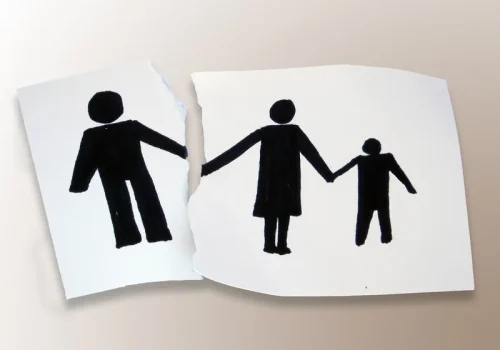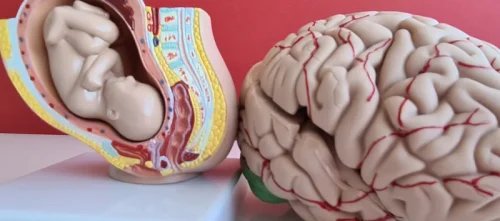
Having people who understand and believe in the recovery journey provides encouragement and strength. Staying motivated is a challenging but ultimately rewarding path towards a healthier, happier life. External recovery motivation factors matter, but inner obstacles such as negative thought patterns and self-defeating beliefs can also lead to a lack of motivation. It’s important to recognize these cognitive patterns for lasting recovery.
Support self-efficacy
- Finally, MET is flexible and adaptable to different stages of readiness for change.
- A thorough list can be found in our Training in Motivational Interviewing article.
- Nevertheless, it is vital to recognize the changing nature of motivation in recovery.
MET shows that the techniques of respect, empathy, and compassion can go a long way toward creating health in our clients. Our Positive Psychology Toolkit©, which contains hundreds of evidence-based exercises and assessments, is a valuable resource for finding motivational interviewing tools. The client must believe they have the ability to change if they desire it. Motivational interviewing has five important techniques that are critical to developing motivation in a client. The Positive Psychology Toolkit© is a groundbreaking practitioner resource containing over 500 science-based exercises, activities, interventions, questionnaires, and assessments created by experts using the latest positive psychology research. It is considered a brief intervention and has the same efficacy and outcomes as other forms of motivational therapies (DiClemente et al., 2017).
Difficulty Coping

Consider mindfulness and meditation as a form of practicing self-care every day. These techniques can help you stay grounded, reduce stress, and enhance your overall well-being. Expressing gratitude for the positive aspects of your life can shift your focus away from the challenges and toward the blessings. Motivation in recovery can be intrinsic, stemming from within, or extrinsic, driven by external factors. This may be surprising, but it is heartening to know that even just four well-structured and targeted sessions with a client can have a lasting impact.
- Explore the client’s understanding of his or her return to substance use.
- Because MI is so much more flexible and multifaceted, it is more widely used.
- Elicit ideas from the client about ways he or she might have resisted temptation to use in the past.
- On one side of the road are all the temptations, urges, and cravings that had led them to the path of destruction.
- The key here is that on the level of the brain, the natural need for connection is one of the few things that has a biological pull equal, or nearly so, to the addiction.
The continuous journey of staying motivated in addiction recovery
The help, understanding, and responsibility provided by this support network can help individuals stay motivated even in challenging times. Motivation plays a crucial role in addiction recovery, helping individuals navigate the challenges they face on their journey towards wellness. In this article, we will explore the importance of motivation in addiction recovery and the specific challenges that arise when trying to maintain it. By understanding these dynamics, we can gain insights into how to effectively stay motivated when faced with the difficulties that may arise throughout the recovery process. Although extrinsic motivators can spark initial action, intrinsic motivation is key for sustaining long-term recovery. Intrinsic motivation is more sustainable than extrinsic motivation, as it comes from within and is not reliant on external factors.
- Therapists using MET collaborate with individuals to explore their values, goals, and the discrepancies between their current behaviors and their desired future outcomes.
- This approach assumes that the patient is responsible for changing his or her addictive behavior and recognizes ambivalence as a natural part of the process.
- The client’s uncertainty toward change is seen as part of the process and not viewed as pathological.
- Support groups or 12-step programs let individuals share their tales, pick up wisdom from those who have gone through similar issues and get inspired by success stories.
Motivational Treatment Approaches
To be resilient and overcome setbacks, it is necessary to focus on what is possible and desirable, rather than on what has gone wrong. With a positive focus, it is easier to “get back on the horse” and try again, limiting the negative effects of a misstep or setback and re-establishing forward momentum toward your recovery goals. First decide to see yourself as someone who is capable of being an honorable person, and someone who is willing to work toward that goal. Once you have embraced this attitude in your mind and heart, you will find it easier to remain on the path to success.
On my very worst day in recovery, I still feel a million times better than I ever did when I was drinking. I thought that when I put down the beer or the whiskey, my life would be over. But when I threw away that last bottle, that is when my life really began. Some days are still hard, but I know that every time I choose to https://ecosoberhouse.com/ deal with my life head-on instead of numbing out with a can or a bottle, the road gets more beautiful. One of the things that I work to instill in the individuals that I have counseled over the years is that they have to want to change if they are wanting to live a different lifestyle when they go back out into society.

Sharing problem-solving skills and coping strategies that have been helpful to others. Recurrence of symptoms is common to substance use behaviors and chronic illness in general. Use the Confidence Ruler (Exhibit 3.10) to evaluate the client’s confidence in applying these coping strategies. Evoke confidence talk to reinforce and enhance self-efficacy (see Chapter 3). Presenting a menu of coping strategies that have a high likelihood of success.
Internal Motivation for Recovery

